 Story
Story
The articles in this edition showcase work from all nine of our faculties, and underscore our University’s slogan ‘Make today matter’. RE.SEARCH has been named South Africa's top corporate publication as the winner of the 2024 SA Publication's Forum Awards. It is a runner up and finalist in the Excellence category for Communication (runner up), Design and Photography (finalist) and the...
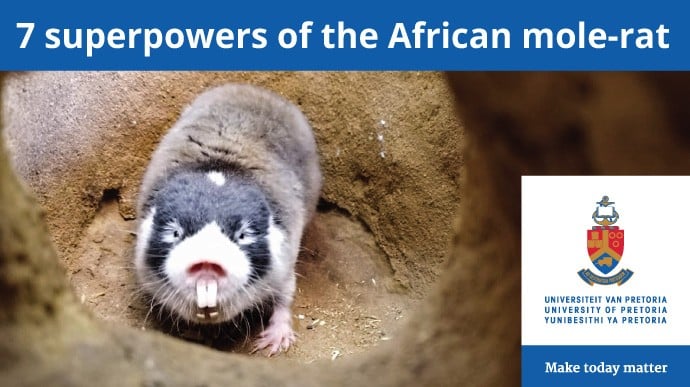 Infographic
Infographic
Mole rat biology could inform human health interventions like cancer therapies, heart attack prevention, maternal health and birth control, mental health approaches, anti-ageing drugs, neurodegenerative disease treatment, and pain management.
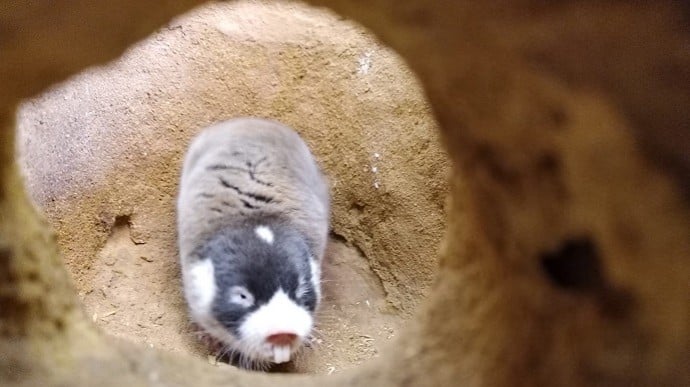 Story
Story
University of Pretoria (UP) scientists have contributed to discovering how the naked mole rat is able to withstand heart attacks and fend off bowel cancer, two of the most fatal human ailments in the developed world. Their findings were published recently in two Nature Communications papers.
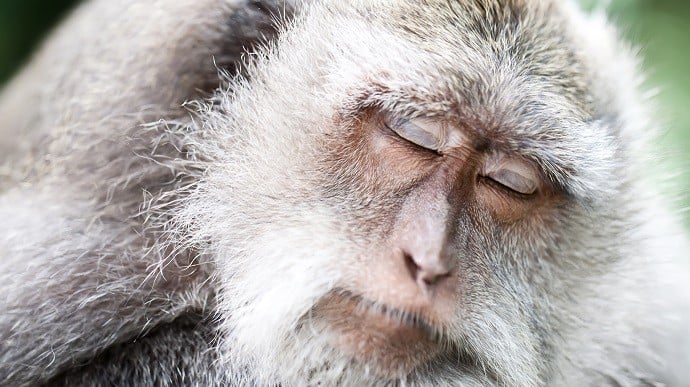 Story
Story
The quest for immortality has long fascinated humans, and inspired countless tales – now, in two new studies published in the journals Nature and Science, University of Pretoria (UP) researchers, along with a team of global experts known as the Mammalian Methylation Consortium, are a step closer to unmasking the secret of aging in mammals, thus raising important questions – and answers.
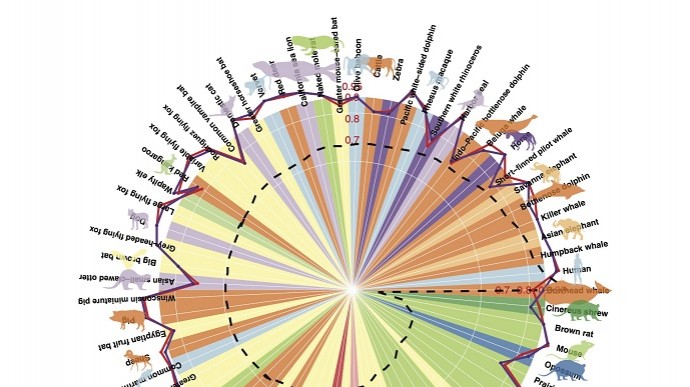 Photo
Photo
Aging has long been thought to be the result of random cellular damage or degradation over time, but this latest research shows that the epigenetic aspects of aging in fact follow a predetermined “programme”.
 Infographic
Infographic
This infographic explains how the universal pan-mammalian clock was developed to determine the age of mammals in the wild for conservation and the preservation of endangered species. The clock can be used in forensic science to estimate the correct age of a victim at the time of death or the age of a suspect based on forensic evidence.
 Talking Point
Talking Point
Researchers at the University of Pretoria (UP) have been working to identify genes that make African women more susceptible to certain forms of breast cancer. However, this is no easy task as very little genomic information is known about African populations.
 Story
Story
Researchers at the University of Pretoria (UP) are making today matter by battling aggressive breast cancer through identifying genes that make African women more susceptible to certain forms of breast cancer. However, this is no easy task as very little genomic information is known about African populations. This is just one of UP's research projects that aim to ensure that there is a clear...
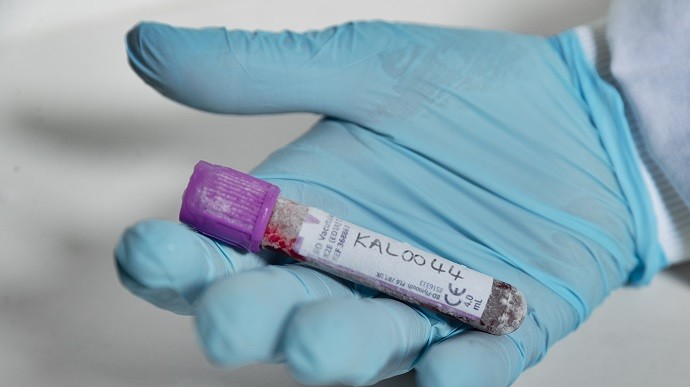 Story
Story
Two pioneering studies published simultaneously today in Nature and Genome Medicine have identified genetic signatures explaining ethnic differences in the severity of prostate cancer, particularly in sub-Saharan Africa.
Copyright © University of Pretoria 2025. All rights reserved.
Get Social With Us
Download the UP Mobile App